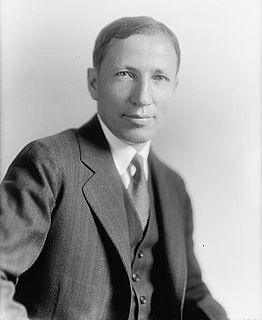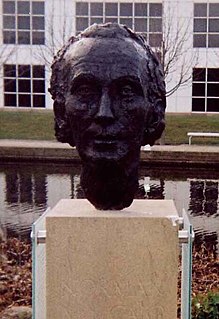A Quote by Richard Dawkins
If children were taught to question and think through their beliefs, instead of being taught the superior virtue of faith without question, it is a good bet that there would be no suicide bombers.
Related Quotes
I was brought up by a Victorian Grandmother. We were taught to work jolly hard. We were taught to prove yourself; we were taught self reliance; we were taught to live within our income. You were taught that cleanliness is next to Godliness. You were taught self respect. You were taught always to give a hand to your neighbour. You were taught tremendous pride in your country. All of these things are Victorian values. They are also perennial values. You don't hear so much about these things these days, but they were good values and they led to tremendous improvements in the standard of living.
This one question-'What do I know for certain?'-is tremendously powerful. When you look deeply into this question, it actually destroys your world. It destroys your whole sense of self, and it's meant to. You come to see that everything you think you know about yourself, everything you think you know about the world, is based on assumptions, beliefs, and opinions-things that you believe because you were taught or told they were true. Until we start to see these false perceptions for what they really are, consciousness will be imprisoned within the dream state.
Every time I asked a question, that magnificent teacher, instead of giving the answer, showed me how to find it. She taught me to organise my thoughts, to do research, to read and listen, to seek alternatives, to resolve old problems with new solutions, to argue logically. Above all, she taught me not to believe anything blindly, to doubt, and to question even what seemed irrefutably true, such as man's superiority over woman, or one race or social class over another.
Why are there beings at all instead of nothing? That is the question. Presumably it is not arbitrary question, "Why are there beings at all instead of nothing"- this is obviously the first of all questions. Of course it is not the first question in the chronological sense [...] And yet, we are each touched once, maybe even every now and then, by the concealed power of this question, without properly grasping what is happening to us. In great despair, for example, when all weight tends to dwindle away from things and the sense of things grows dark, the question looms.
Listen to your beliefs, think about how you learned them, and realize that they are not genetic, nor are they the "only way." You are free to acquire new perspectives, to absorb new ideas, and to question everything you were taught to believe. As your mind opens to exploration and change, you'll feel a new lightness and more joy.
Christianity, just as much as Islam, teaches children that unquestioned faith is a virtue. You don't have to make the case for what you believe. If somebody announces that it is part of his faith, the rest of society, whether of the same faith, or another, or of none, is obliged, by ingrained custom, to "respect" it without question; respect it until the day it manifests itself in a horrible massacre like the destruction of the World Trade Center, or the London or Madrid bombings.
I once heard a theologian remark that in the Gospels people approached Jesus with a question 183 times whereas he replied with a direct answer only three times. Instead, he responded with a different question, a story, or some other indirection. Evidently Jesus wants us to work out answers on our own, using the principles that he taught and lived.




































